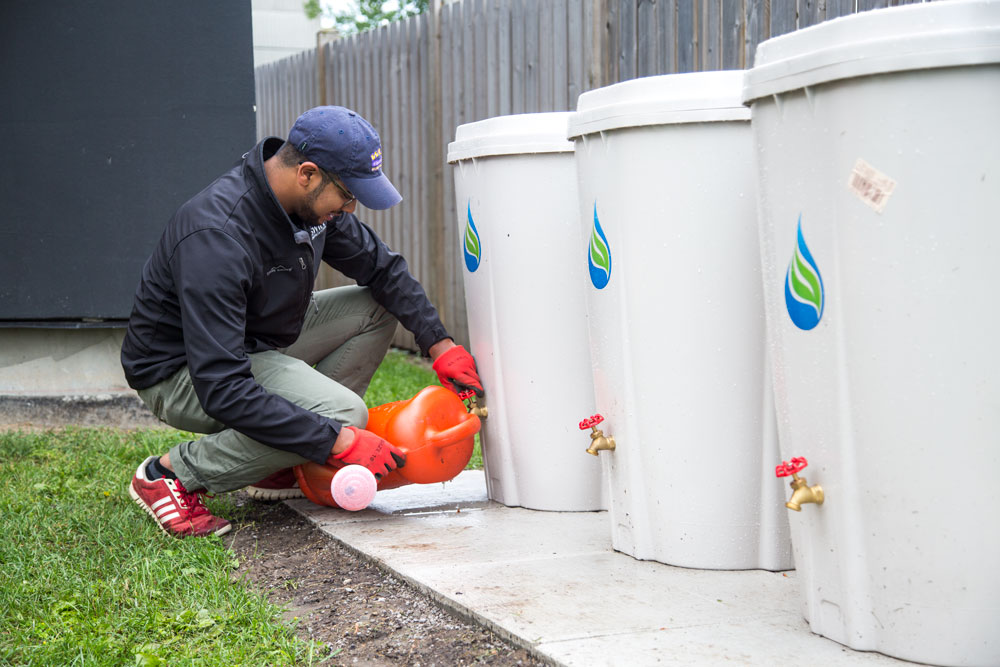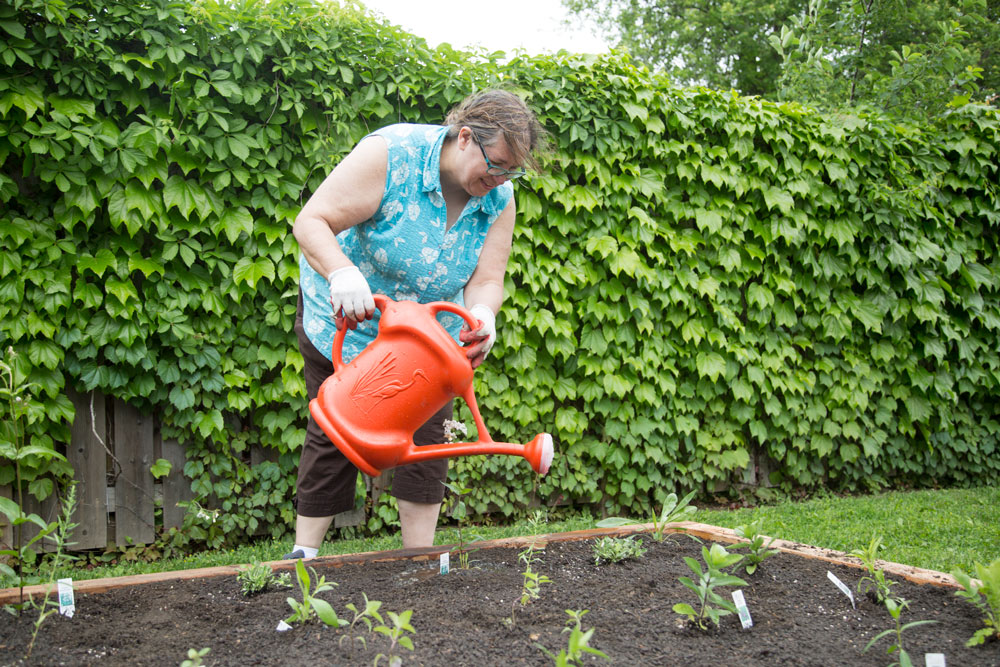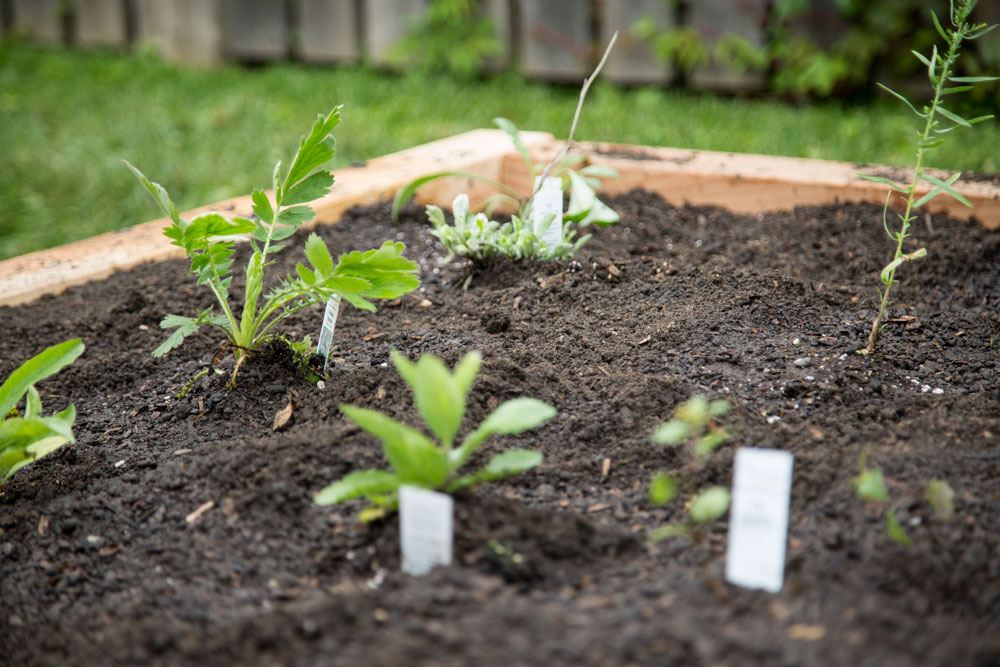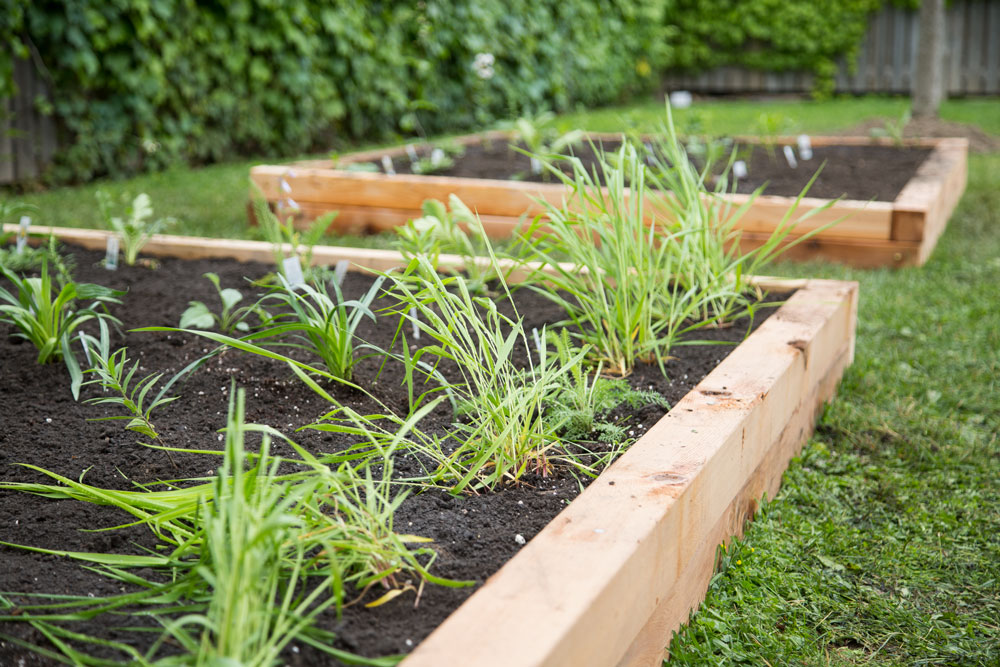Indigenous awareness, sustainability features highlight new university garden
Garden will also promote environmental education
June 26, 2017
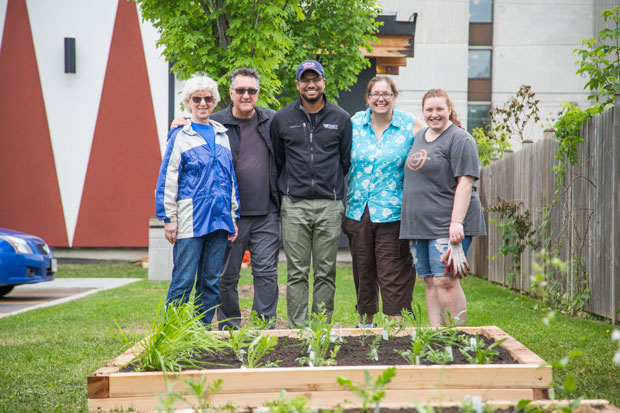
The University of Ontario Institute of Technology (UOIT) proudly celebrates its award-winning portfolio of environmentally sustainable practices with a new community involvement initiative this summer.
Teacher candidates in the Faculty of Education (FEd) have launched a series of outreach activities focusing on school and community gardens that incorporate an Indigenous knowledge perspective. The first partnership with local community groups set the wheels in motion for the creation of two gardens at the university’s downtown Oshawa location, behind the UOIT-Baagwating Indigenous Student Centre (UBISC) and the 61 Charles Street Building.
The new garden beds feature local native flora purchased from Native Plants of Claremont, Ontario, and the traditional Indigenous sacred medicinal plants white sage and tobacco. A future raised garden bed will add cedar and sweetgrass, also sacred medicines. UBISC staff, FEd teacher candidates and FEd summer camp counsellors will maintain the gardens.
Funding for the garden project came through a TD Friends of the Environment Foundation Canada 150 grant.
“Sustainability and environmental action projects are an important component of the teacher candidate experience as they move into their own classrooms in the future,” says Sheila Rhodes, Academic Associate, FEd, and garden project co-ordinator. “Associated activities will model best practices in environmental education and develop local gardens connecting to Indigenous knowledge teachings.”
In addition to FEd and UBISC, members of the garden partnership include the university’s Office of Campus Infrastructure and Sustainability (OCIS) and Durham Master Gardeners. Future initiatives include building a traditional Indigenous garden at the Sweat Lodge grounds (near the university’s north Oshawa location) later this summer as part of the Turtle Island Indigenous Knowledge camp.
Related links
@BEd_UOIT
@UOITGoGreen
@TDFEF
@UOITIndigenous
